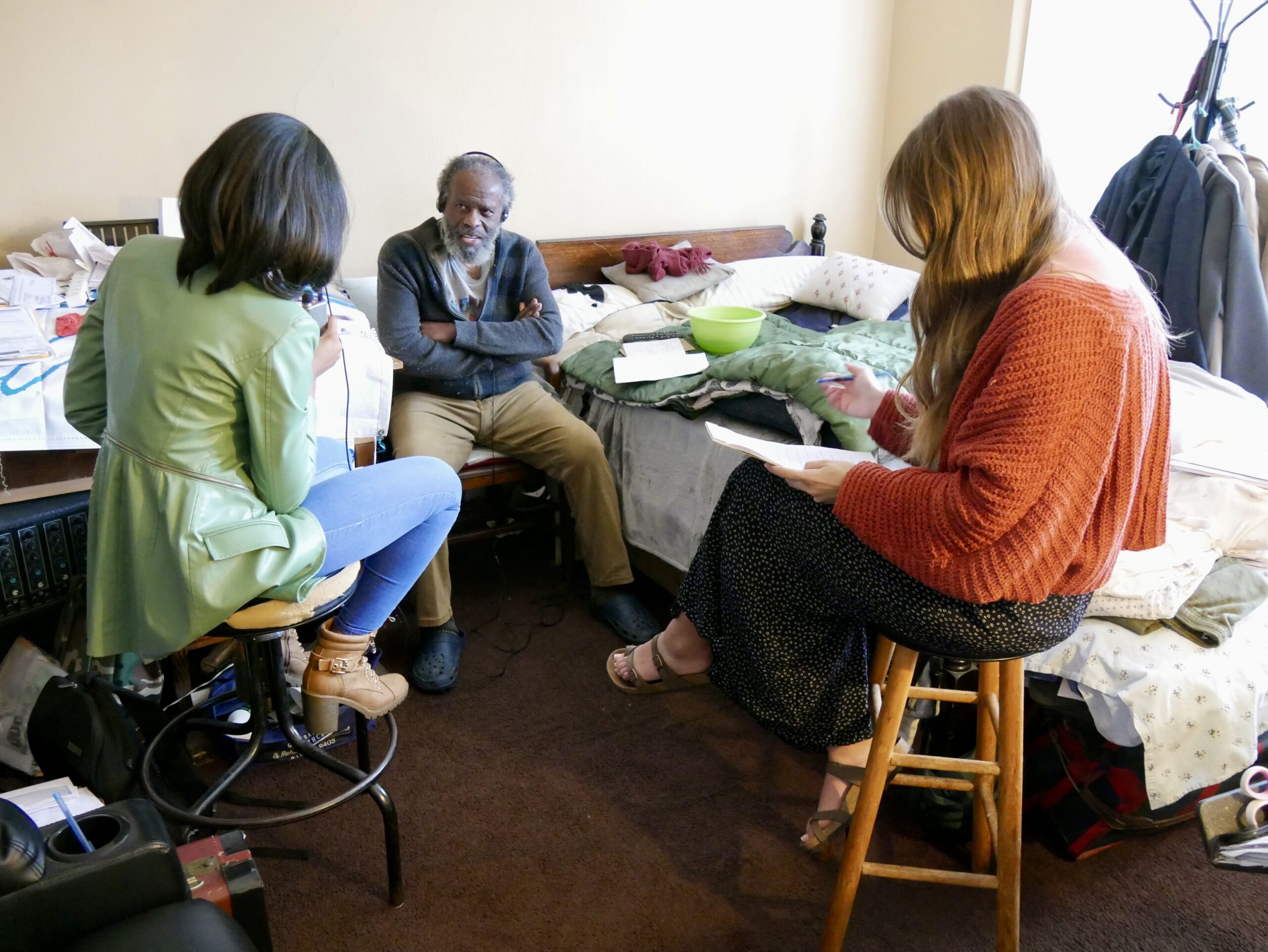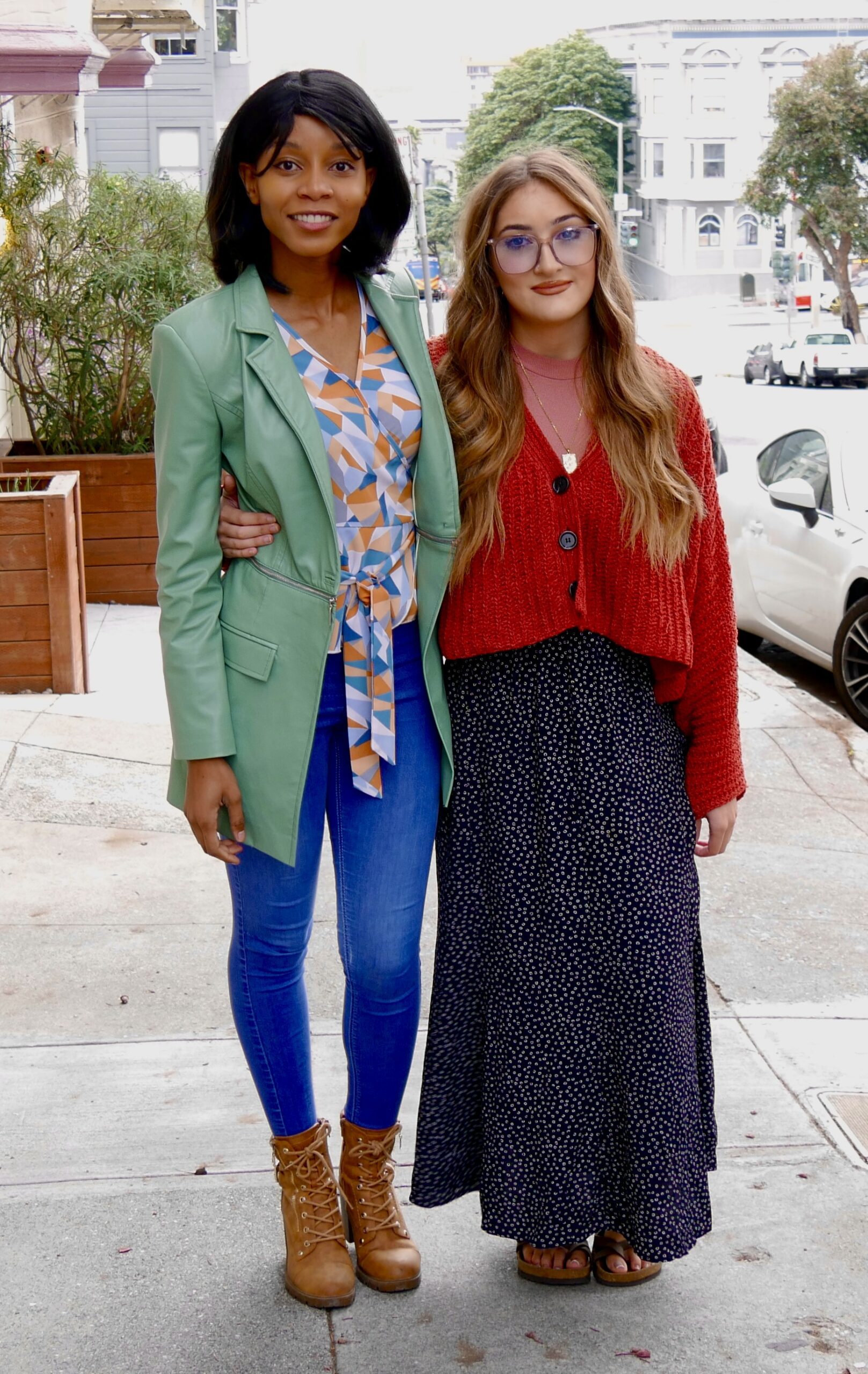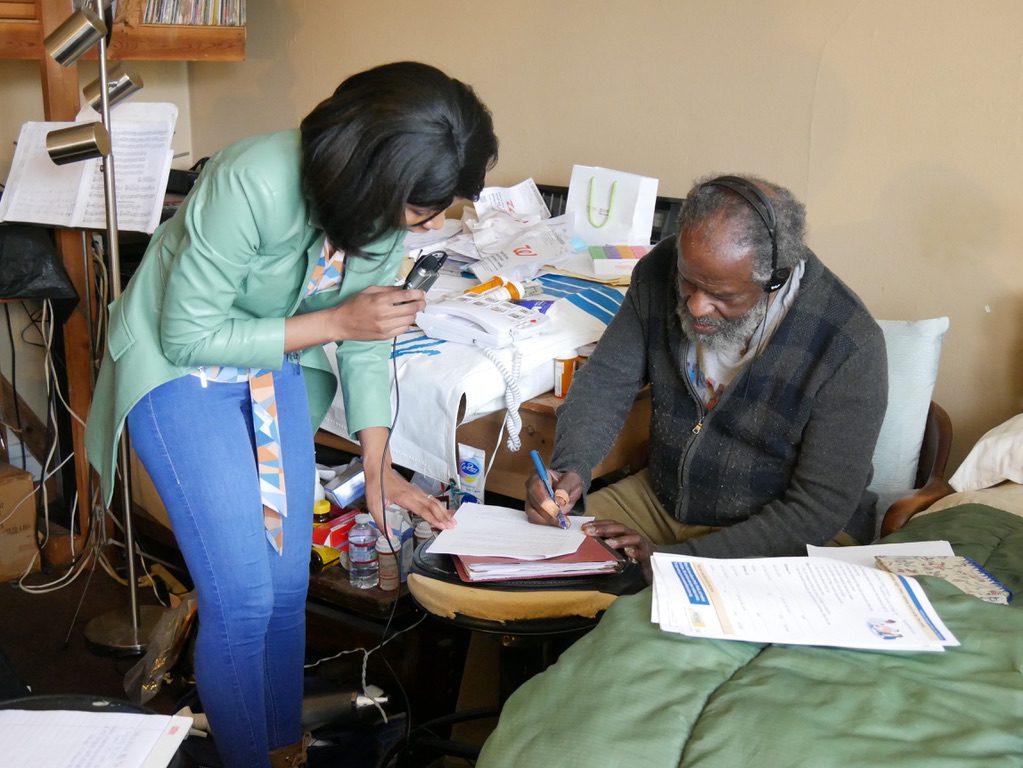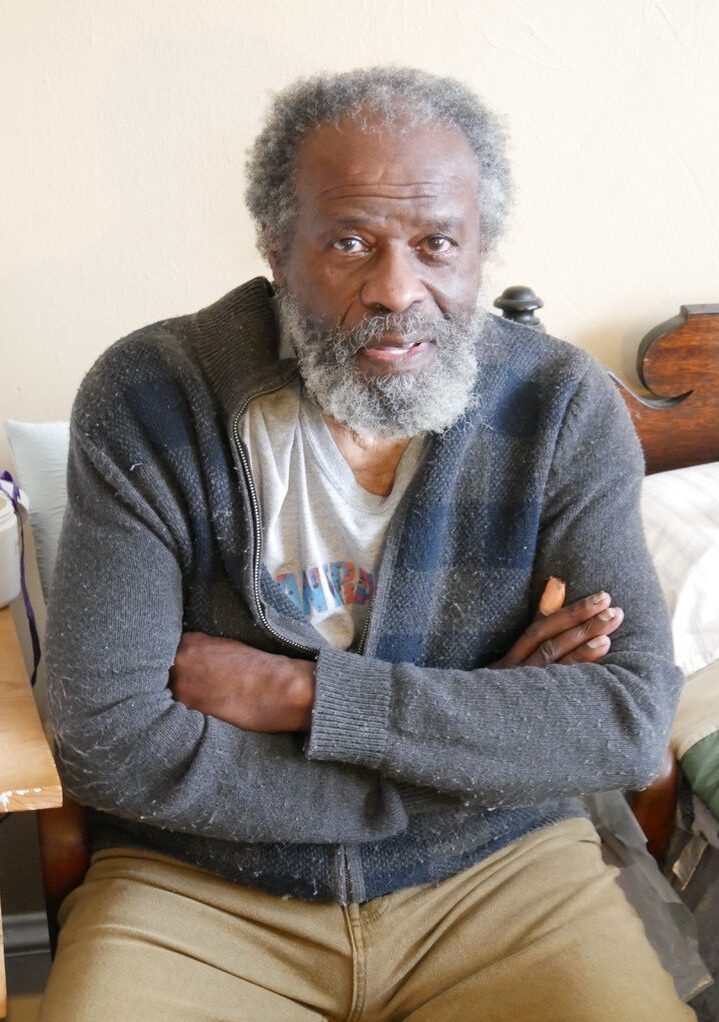Law Clinic Students Use Legal Skills to Support Seniors' Health

UC Law SF students Kuwabo Mubyana ’24 and Sophia Tarantino ’24 interviewed Patrick Prescod at his home in San Francisco as part of their work with the Medical-Legal Partnership for Seniors Clinic.
When longtime San Francisco resident and steel-drum musician Patrick Prescod, 88, was at risk of losing in-home care visits from his medical provider, two UC Law SF students stepped in to help.

Clinic students Kuwabo Mubyana and Sophia Tarantino pose outside of their client Patrick Prescod’s home in San Francisco’s Western Addition neighborhood.
Kuwabo Mubyana ’24 and Sophia Tarantino ’24 contacted multiple government agencies to find out why Prescod was automatically kicked off his old Medicare plan and switched to one that no longer covered in-home care visits. They then worked with Prescod’s daughter, who was abroad, to get him back on the right health plan.
“I could no longer see him because his insurance would no longer cover our services,” said Prescod’s provider Courtney Gordon, a nurse practitioner with UCSF’s Care At Home Program. “If I’m not coming to his house, then he doesn’t have any care.”
Mubyana and Tarantino’s work this past fall was part of UC Law SF’s Medical-Legal Partnership for Seniors Clinic (MLPS), in which students help low-income seniors keep their housing, obtain public benefits, plan for the future, and navigate other complex legal challenges.
Overseen by Clinical Professor Yvonne Troya, it is one of UC Law SF’s many in-house clinics, collectively known as the Community Justice Clinics.
Troya said she runs the clinic like a small law firm operating out of the law school. She teaches students about skill building, substantive law, ethics, and more as they enter the field to interview clients, manage cases, prioritize client needs, correspond with government agencies, manage conflicts with third parties, and draft legal documents – all skills that are crucial in any legal practice.
“I see the clinic as a way to build the self-esteem of law students and clients,” Troya said. “It’s wonderful to see students’ self-confidence blossom, but the clients grow more confident too. We have noticed that our clients also seem to improve in their health function over the course of the semester.”

Kuwabo Mubyana helped client Patrick Prescod sign legal documents that she and her clinic partner Sophia Tarantino drafted for him.
Clients are referred to the clinic by medical providers at UCSF and the San Francisco Veterans Affairs (VA) Medical Center. Providers sometimes introduce law students to new clients during doctor’s visits. Students then meet with clients directly, usually at the client’s home. They build rapport over time while delving into sensitive topics, such as end-of-life care and estate planning.
Mubyana and Tarantino visited Prescod multiple times at his home in the Western Addition neighborhood of San Francisco. Based on his wishes, they created an advanced health care directive and durable power-of-attorney for finances, two key documents that specify how he should be cared for and who should make decisions on his behalf, should he become incapacitated.
“I see it as a way for older people to take control of their own autonomy in ways they could not without those documents,” Tarantino said. “It can also save them time and money. When a parent or loved one is in the hospital and you need to get information, like from their insurance company or bank, you can do it much more easily and avoid a lengthy, expensive, and very burdensome court process called conservatorship.”

Patrick Prescod grew up on the island of Tobago and still plays music. He said he aspires to win a Grammy award one day.
Beyond legal help, clinic students also provide opportunities for seniors to connect with others. Gordon said many older patients spend long stretches of time isolated in their homes due to mobility challenges and other issues. She said socialization can improve one’s mental health and overall well-being.
Getting to know Prescod over the course of the semester, Mubyana and Tarantino saw his face light up as he shared stories from his youth and his long career as a musician. He recounted his standing-ovation performance at San Francisco Symphony Hall in the 1970s and years of playing Caribbean-style tunes on his steel drums in the city’s Union Square shopping district.
“He invited us to listen to his music,” Mubyana said. “With each visit, he seemed less guarded and more excited to see us. It became clear that he valued our relationship and companionship. Building that kind of rapport with clients is crucial for providing quality legal aid.”
Gordon said the legal clinic has been extremely beneficial for her patients. Law students have helped seniors deal with landlord-tenant issues and health insurance problems, disputed medical bills, and have enrolled them in and sought increased financial support from benefits programs, such as Social Security and Medi-Cal.
“If someone is able to make sure they’re living in a safe environment and not going to get evicted or saddled with a big medical bill, that’s going to help their health,” Gordon said. “It’s been a big benefit to my patients and allowed us all to do our jobs well.”